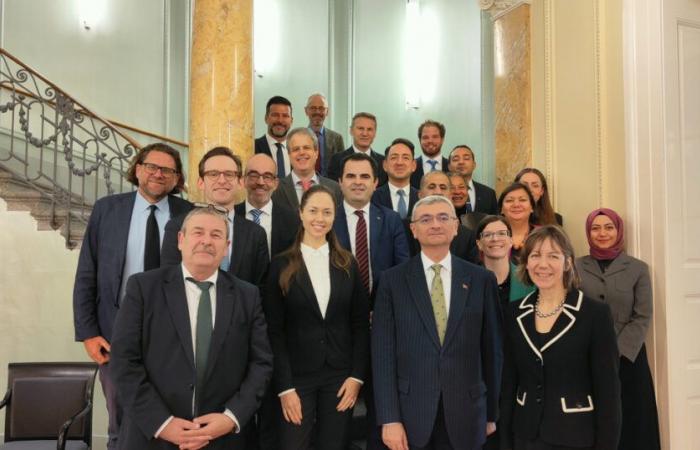On November 15, 2024, the 11the joint economic commission between Switzerland and Turkey, in Bern. On the Swiss side, the meeting was chaired by Ambassador Andrea Rauber Saxer. A broadly representative Swiss economic delegation, led by economiesuisse, was able to express its concerns to high-ranking representatives of the Turkish Ministry of Commerce. It included representatives from several industries: pharmaceuticals, machinery, textiles, watchmaking, rail and mobility.
Türkiye: a strategic market with great potential
With a trade volume of 16.9 billion francs (respectively 14.7 billion francs and 2.2 billion francs for exports and imports, including gold), Turkey is already the 13e trading partner of Switzerland. As the industry interventions clearly showed, Turkey’s potential for Swiss companies is far from exhausted.
This is explained, on the one hand, by the strategic geographical location of this country located on the Bosphorus which makes it a hub for Swiss exports to the Middle East and North Africa. On the other hand, Turkey has abundant natural resources, a young and growing population and well-developed infrastructure. Turkish expertise in the field of large infrastructure projects offers particular opportunities to Swiss companies. To better seize these opportunities, Switzerland has launched the “Team Switzerland Infrastructure” project. The next concrete steps could be defined during the joint committee.
A difficult economic and geopolitical context
These developments are in the interest of the Swiss economy. In fact, the 8e Switzerland’s place among the largest foreign investors (3.8 billion francs, end of 2022) masks the fact that the investment climate has cooled in recent years due to extreme volatility in the Turkish market. The culprits are, in part, high inflation (50% in October 2024), triggered by an unorthodox monetary policy. Furthermore, the Turkish economy is suffering from the current geopolitical upheavals – which Swiss companies are particularly feeling in the areas of agricultural products and energy.
Positive economic outlook
During the meeting, however, the Swiss economy noted with interest that the Turkish government had implemented several stabilizing reforms since last year. It is thus in the process of improving access for foreign companies to the national railway sector. Turkey has also launched an economic program aimed at controlling inflation by 2026 by raising interest rates and tightening monetary policy. These reforms were rewarded this year with two “Upgrades” by international rating agencies (the last time from B+ to BB-). The Swiss economy is seeing the first positive effects of this reorientation of economic policy.






